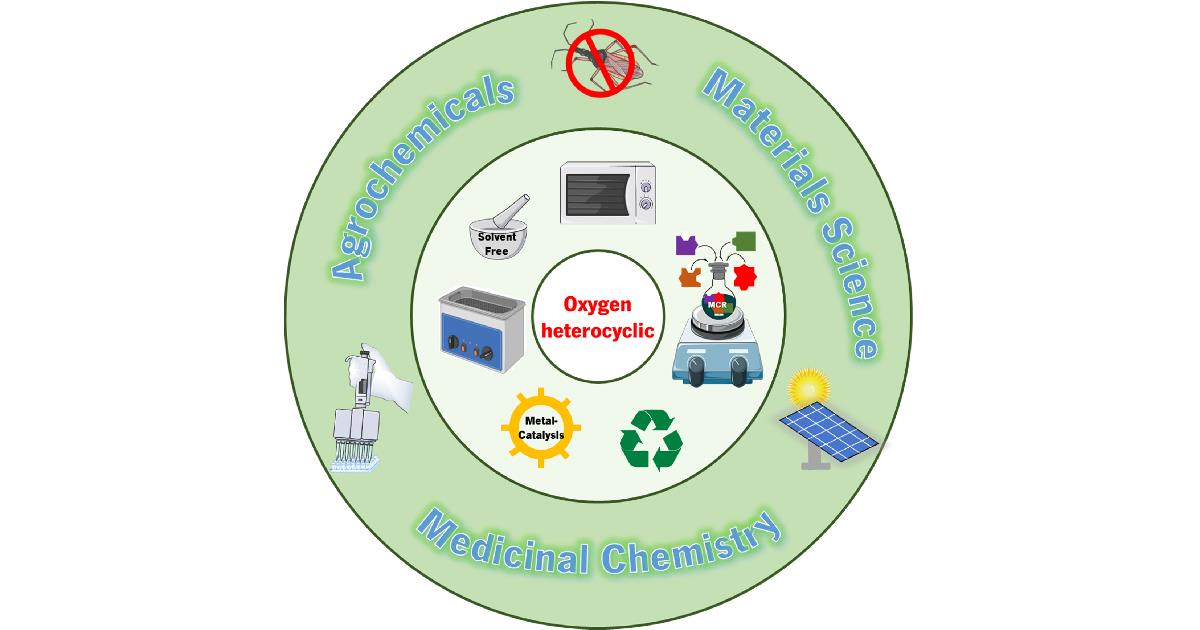Oxygen-Containing Heterocyclic Compounds: Recent Advances in Chemistry
A special issue of Chemistry (ISSN 2624-8549). This special issue belongs to the section "Molecular Organics".
Deadline for manuscript submissions: 15 April 2026 | Viewed by 6030

Special Issue Editors
Interests: organic chemistry; synthesis of nitrogen and oxygen heterocycles; synthesis of potentially bioactive molecules; functionalization of carbon nanotubes and graphene
Interests: organic synthesis; heterocyclic chemistry; polymer chemistry; graphene; fibers; sustainability; green methods
Special Issue Information
Dear Colleagues,
This Special Issue is "Oxygen-Containing Heterocyclic Compounds: Recent Advances in Chemistry".
Heterocycles containing oxygen are increasingly recognized for their biological significance, particularly in drug discovery. These oxygen-containing heterocyclic compounds have garnered significant attention in recent years due to their versatility and importance across various fields, including pharmacology, agrochemistry, and materials science. Many FDA-approved drugs feature these heterocycles, underscoring their crucial role in medicinal chemistry and potential applications.
Innovative synthesis methods, such as multicomponent reactions and catalysis-based strategies, have recently been developed, allowing for more efficient and sustainable production of heterocycles. Advances in eco-friendly synthesis methods, such as microwave-assisted reactions and solvent-free conditions, enhance yields and minimize waste.
These compounds serve as essential scaffolds in drug development, owing to their unique chemical properties and ability to interact effectively with biological targets.
Beyond biological applications, these compounds are also being investigated for their potential in materials science, including organic photovoltaics and sensors, and in developing agrochemicals for innovative pest control and crop protection solutions.
This Special Issue aims to gather contributions on the latest advances in the synthesis, characterization, and chemical applications of oxygen-containing heterocyclic compounds. We invite a diverse range of original research communications and review articles. Both original research articles and comprehensive review papers are welcome.
Prof. Dr. Fernanda Proença
Guest Editor
Dr. Elina Marinho
Guest Editor Assistant
Manuscript Submission Information
Manuscripts should be submitted online at www.mdpi.com by registering and logging in to this website. Once you are registered, click here to go to the submission form. Manuscripts can be submitted until the deadline. All submissions that pass pre-check are peer-reviewed. Accepted papers will be published continuously in the journal (as soon as accepted) and will be listed together on the special issue website. Research articles, review articles as well as short communications are invited. For planned papers, a title and short abstract (about 250 words) can be sent to the Editorial Office for assessment.
Submitted manuscripts should not have been published previously, nor be under consideration for publication elsewhere (except conference proceedings papers). All manuscripts are thoroughly refereed through a single-blind peer-review process. A guide for authors and other relevant information for submission of manuscripts is available on the Instructions for Authors page. Chemistry is an international peer-reviewed open access monthly journal published by MDPI.
Please visit the Instructions for Authors page before submitting a manuscript. The Article Processing Charge (APC) for publication in this open access journal is 1800 CHF (Swiss Francs). Submitted papers should be well formatted and use good English. Authors may use MDPI's English editing service prior to publication or during author revisions.
Keywords
- oxygen heterocycles
- medicinal chemistry
- biological activity
- drug discovery
- new synthetic methodologies
- sustainable chemistry
Benefits of Publishing in a Special Issue
- Ease of navigation: Grouping papers by topic helps scholars navigate broad scope journals more efficiently.
- Greater discoverability: Special Issues support the reach and impact of scientific research. Articles in Special Issues are more discoverable and cited more frequently.
- Expansion of research network: Special Issues facilitate connections among authors, fostering scientific collaborations.
- External promotion: Articles in Special Issues are often promoted through the journal's social media, increasing their visibility.
- Reprint: MDPI Books provides the opportunity to republish successful Special Issues in book format, both online and in print.
Further information on MDPI's Special Issue policies can be found here.






